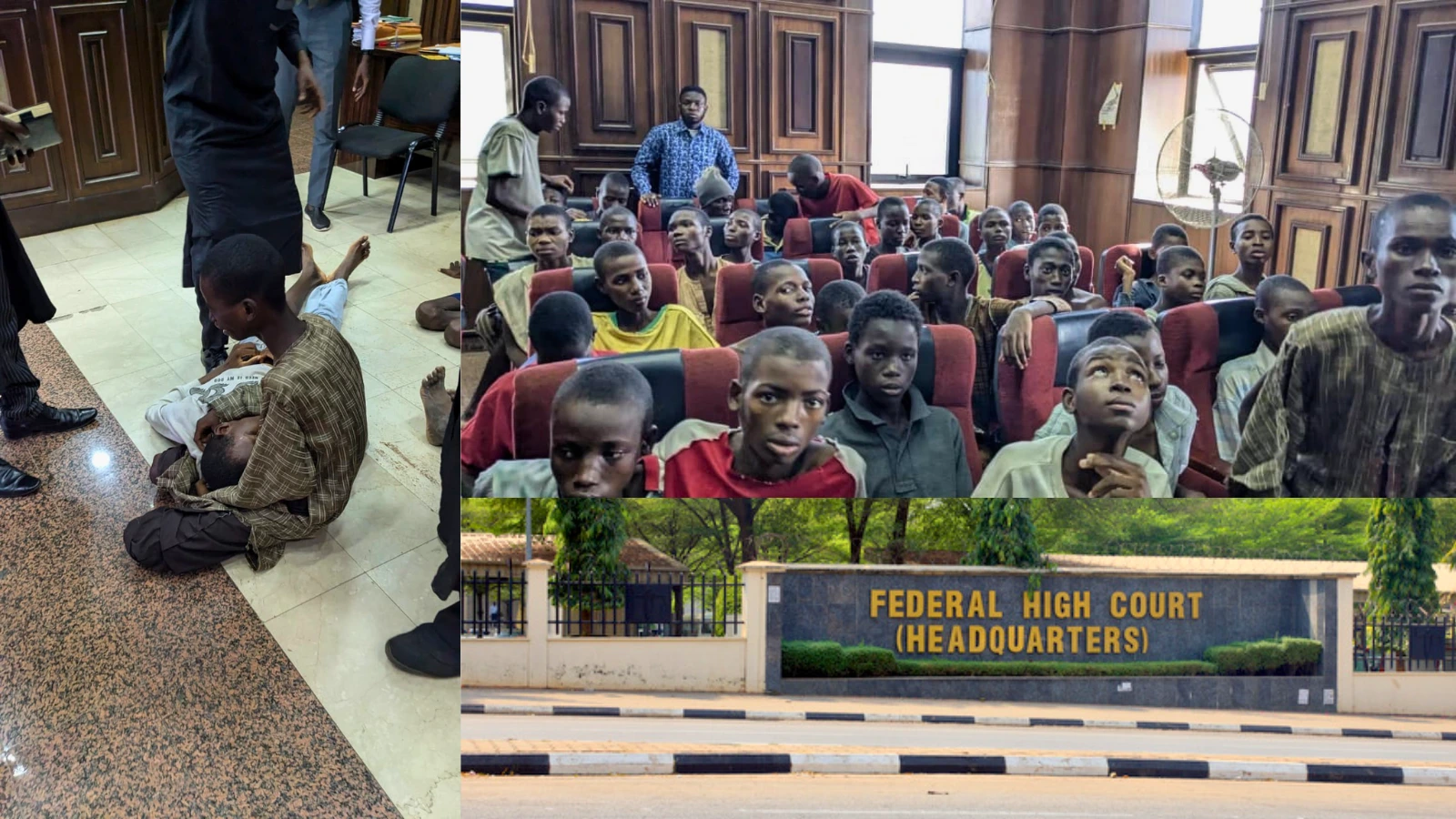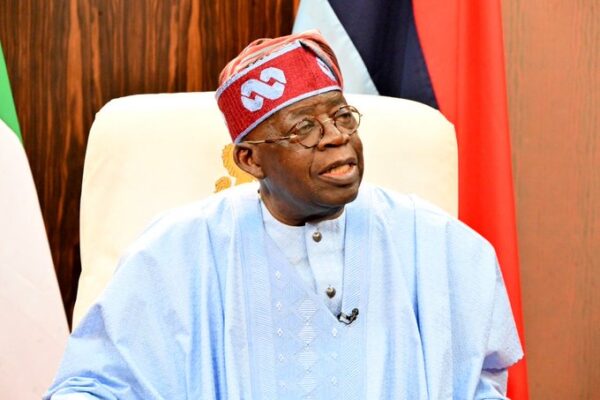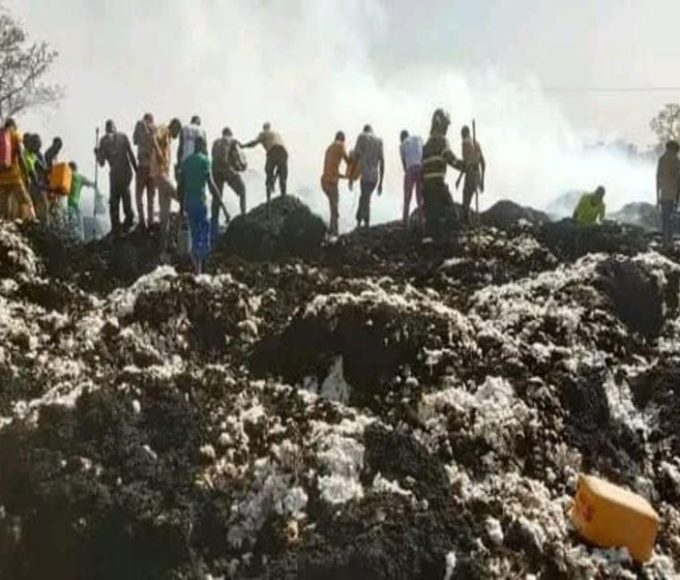
#EndBadGovernance: Despite Public Outcry, Police Says Fainting By Minors in Court Were Staged

In a controversial court appearance, 76 suspects, majorly minors, were brought before the Federal High Court in connection with charges stemming from their alleged involvement in the #EndBadGovernance protests.
Videos online have sparked national outrage, showing visibly malnourished children—some seen in the video collapsing from exhaustion—as they awaited arraignment. Up to six minors reportedly fainted during the proceedings, causing a significant stir and intervention to provide urgent medical aid.
The arraigned individuals, many reportedly as young as 13, face charges including arson, terrorism, and threats to national security. The case has reignited fierce public debate about police handling of young protestors and the Nigerian government’s treatment of minors in detention.
Criticism intensified when the court set bail at N10 million per minor, raising further questions about the appropriateness of these actions under Nigerian and international human rights standards.
Muyiwa Adejobi, Force Public Relations Officer, defended the arrests, stating that the minors were“criminally liable” and implicated in violent behaviour during protests. He stressed that the Nigerian Police Force (NPF) acted within the boundaries of the law, referencing precedents in other jurisdictions that allow the prosecution of minors under strict procedures.
Once you are more than 7 years old, you can be charged to court … none of them is less than 7 … the fact that you are 13 years old does not mean you can’t be charged to court, he said.
In response, political leaders and civil rights advocates voiced sharp disapproval. Labour Party’s presidential candidate, Peter Obi, condemned the treatment of the minors, calling it “inhuman” and an “embarrassment” to Nigeria’s democratic image.
He further criticised the alleged conditions under which the minors were held and the extended delay in their arraignment, expressing concern for their well-being during detention.
The offence being alleged against these suspects, including minors, is protesting against bad governance that was directly affecting their livelihood and which our constitution under a democratic dispensation guarantees them. Curiously, most of the people in government today leveraged this aspect of the Constitution, standing as champions of good governance while in opposition.
Former Vice President Atiku Abubakar echoed these sentiments, likening the treatment of the young detainees to “scenes from a concentration camp.”
In a statement, Abubakar described the sight of malnourished children in court as a “low point” for the government, calling for a reevaluation of how young protesters and dissenters are treated.
The horrible scene reminiscent of a Nazi concentration camp once again reflects the low premium the current government places on the lives of the vulnerable, especially children, he said.
Amid the escalating controversy, Inspector-General of Police Kayode Egbetokun attempted to clarify the police’s stance, asserting that the suspects had feigned fainting as a “deliberate act” to generate negative media attention.
The Inspector-General of Police, Kayode Egbetokun, has stated that the fainting of six suspects in court before their arraignment was a deliberate act, scripted to attract negative attention, PUNCH reported.
He emphasised the police’s dedication to the welfare of those in custody and reaffirmed that the NPF would uphold transparency throughout the legal process.
Read More:
- 33 Million Nigerians at Risk of Suffering Food Crisis by 2025, CH Reports
- Court Orders Final Forfeiture of $2 Million and Properties Linked to Former CBN Governor Emefiele
- Suspension of Uranium Production by French Firm Orano is Irrelevant — Niger Govt
About The Author
Related Articles
Bola Tinubu Administration Accused of Enabling Terrorism as NSA Nuhu Ribadu Pushes Terrorist Reintegration with Western-Funded Ex-Fighter Programs
The administration of President Bola Tinubu is running the country on autopilot...
ByWest Africa WeeklyMarch 1, 2026Zimbabwe Rejects $350m US Health Deal Over Sovereignty Dispute
Zimbabwe has formally withdrawn from negotiations on a proposed $350 million health...
ByWest Africa WeeklyFebruary 25, 2026Niger’s President Outlines Vision for Strategic Partnership with China
Niger’s Head of State, General Abdourahmane Tiani, has articulated a renewed vision...
ByWest Africa WeeklyFebruary 25, 2026Fire Destroys 140 Tonnes of Cotton in Western Burkina Faso
A major fire has destroyed more than 140 tonnes of cotton in...
ByWest Africa WeeklyFebruary 25, 2026












Leave a comment